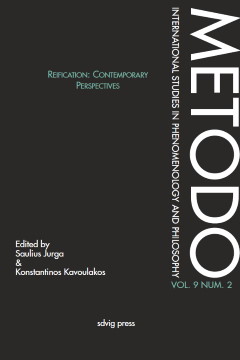Reification and the real
the "fact of existence" in intersubjective recognition
pp. 273-290
Abstract
The concept or category of reification has taken several forms since its early evolution in Marx’s nineteenth-century political-economic denunciation of the harms of commodity exchange. Moreover, with commodifcation continuing in the twentieth century, Lukács asserted that reification had also gained a foothold in the social and political domains of capitalism, which further reduced the power of individuals to reverse it. But Axel Honneth asserts that Lukács’s account, though well intentioned, lacks a theoretical justifcation for the way in which agents need to interact to develop intellectually and emotionally within capitalism’s strictures. Honneth thus attempts to develop an account of the structure of intersubjective recognition that can protect individuals from the dehumanizing harms of reification. His object relations approach to recognition, however, leaves out a critical component of shared agency: namely, such an intersubjective dynamic necessitates that the agents in an interaction have a mutually accepted and non-reified but real third, an existential element that inaugurates and sustains the formation of non-reified and contingent relations for the agents of interaction. Autonomous yet coordinated actions, and mutatis mutandis those of society as a whole, are possible only when this shared third is acknowledged by the agents of said actions.
Publication details
Published in:
Jurga Saulius, Kavoulakos Konstantinos (2021) Reification. Metodo 9 (2).
Pages: 273-290
Full citation:
Swindal James (2021) „Reification and the real: the "fact of existence" in intersubjective recognition“. Metodo 9 (2), 273–290.


